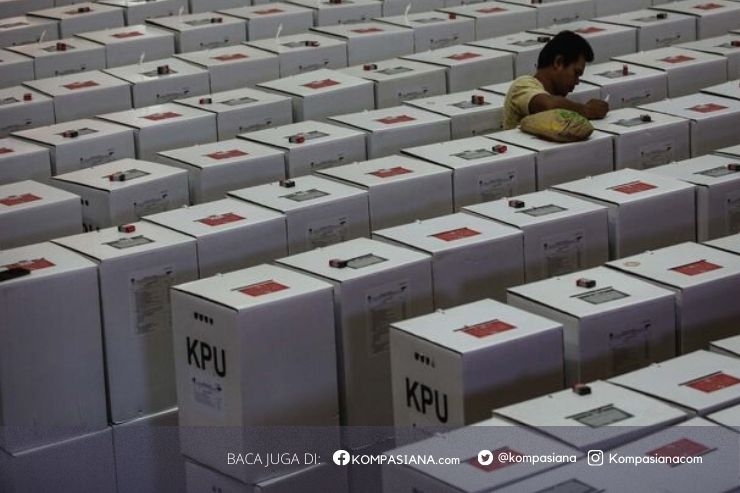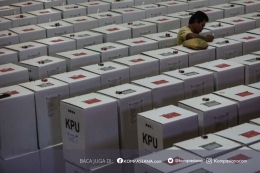The political landscape of Aceh Singkil has been significantly shaped by figures like AKBP (Purn.) Haji Syuhaimi Abdurrahman, whose career and aspirations have been closely tied to the region's development. Syuhaimi's biography reveals a dedicated individual who, after years of service, harbors ambitions to further the progress of his hometown (Tribunnews Aceh, 2022). Political biographies and profiles serve as a crucial source of information for voters, enabling them to make informed decisions during elections. These documents typically outline a candidate's background, qualifications, political ideology, and achievements, offering insights into their suitability for office. In the case of AKBP (Purn.) Haji Syuhaimi Abdurrahman, a well-documented biography would likely detail his career in law enforcement, his contributions to the community, and his vision for the future of Aceh Singkil.
AKBP (Purn.) Haji Syuhaimi Abdurrahman is a figure who has garnered attention for his intention to participate in the local elections (Pilkada) in Aceh Singkil. His background as a retired Senior Commissioner of Police (AKBP) and his personal history, including his efforts and aspirations for the region, are likely to be central to his political profile. Voters often seek to understand a candidate's past actions, professional accomplishments, and vision for the future when making their decisions.
Singkil, known as one of the districts in Aceh, has faced various challenges over the years. As of my last update, it was considered one of the less developed areas in the region. The reasons for this could be multifaceted, involving economic, social, and infrastructural factors. Development issues in such regions often stem from a combination of inadequate investment, resource allocation, and sometimes, governance challenges.
In the context of Aceh Singkil, any development strategy would need to consider the unique cultural, economic, and geographical aspects of the district. Effective development policies are those that are inclusive, sustainable, and tailored to the specific needs of the local population. Understanding the historical context and the current state of affairs is crucial for any candidate looking to make a positive impact in the region.
For voters, the biography and political profile of a candidate like AKBP Syuhaimi can provide valuable insights into how he may address the pressing issues of Singkil's development and work towards elevating the district's status within Aceh. It is important for such profiles to be comprehensive, transparent, and reflective of the candidate's true intentions and capabilities.
Aceh Singkil, known for its rich natural resources, faces significant development challenges. Despite its potential, it remains one of the poorest districts in Aceh, with issues such as inefficient agricultural practices and limited access to markets hindering progress (Rigayatsyah et al., 2022; Situmorang & Munardi, 2018). The perception of the local community towards economic contributions like zakat from palm oil production also plays a role in the socio-economic dynamics of the region (Khairuddin, 2020).
Understanding the intricacies of Singkil's development is essential for candidates like Syuhaimi, who aim to address these issues and improve the district's economic standing. His background and the strategies he proposes could be pivotal in driving change and fostering growth in Singkil. As the local election approaches, voters will be looking closely at how candidates plan to tackle the district's challenges and leverage its opportunities for a better future.
Aceh Singkil, despite being one of the poorest districts in Aceh, is rich in natural resources, particularly palm oil plantations, which are a major economic driver yet also a source of socio-economic disparities (Syahrani, 2020). Studies like those by Rigayatsyah et al. (2022) have analyzed the efficiency of palm oil processing in the district, highlighting the potential and challenges in the industry. The community's perception of economic obligations such as zakat on palm oil profits, as discussed by Khairuddin (2020), reflects the intertwining of economic and religious practices in the region. Furthermore, research by Situmorang and Munardi (2018) has delved into the factors affecting the welfare of palm farmers, shedding light on the complex dynamics of prosperity and poverty in Aceh Singkil. The development trajectory of Singkil has been marred by various issues, from infrastructural challenges to administrative hurdles, which have impeded the region's growth despite its potential (MediaAdvokasi.id, 2024). As election periods draw near, political parties and candidates, including Syuhaimi, present their visions for overcoming these obstacles and revitalizing Singkil's economy, with a focus on inclusive and sustainable development strategies (ANNews, 2024; HabaAceh.id, 2024). The support for Syuhaimi's candidacy, backed by his economic success and local support, underscores the community's desire for leadership that can navigate the complexities of regional development and leverage Singkil's resources for the betterment of its inhabitants (XtraFM Singkil, 2024).
Palm oil farmers in Aceh Singkil face a multitude of challenges that impact their productivity and sustainability. One significant issue is the efficiency of palm oil mills; studies have shown that not all mills operate at an optimal level, with some falling below the efficiency threshold, which affects the overall output and profitability of the farmers' produce. Environmental concerns also pose a major challenge, as the expansion of palm oil plantations has led to the destruction of peat swamps, which are crucial for biodiversity and carbon storage. This not only threatens the habitat of endangered species like the Sumatran orangutan but also raises questions about the long-term viability of farming practices.
Furthermore, the lack of a clear legal framework and comprehensive mapping of community palm oil plantations complicates land ownership and usage rights, leading to disputes and uncertainty. This is exacerbated by the absence of a local government budget dedicated to addressing these issues, leaving farmers without the necessary support to navigate the legal and bureaucratic obstacles that come with palm oil cultivation. Additionally, farmers must contend with the physical challenges of the region, such as the erratic rainfall patterns and elevated temperatures brought on by climate change, which can affect crop yields and increase the incidence of pests and diseases.
Supply chain issues also present hurdles, as smallholder farmers often struggle to access markets and receive fair prices for their products. This is compounded by fluctuating consumer sentiment and demand, which can lead to instability in the palm oil market. To overcome these challenges, it is essential for stakeholders, including farmers, government bodies, and conservation groups, to collaborate on creating sustainable and equitable solutions that balance economic growth with environmental stewardship and social welfare.








